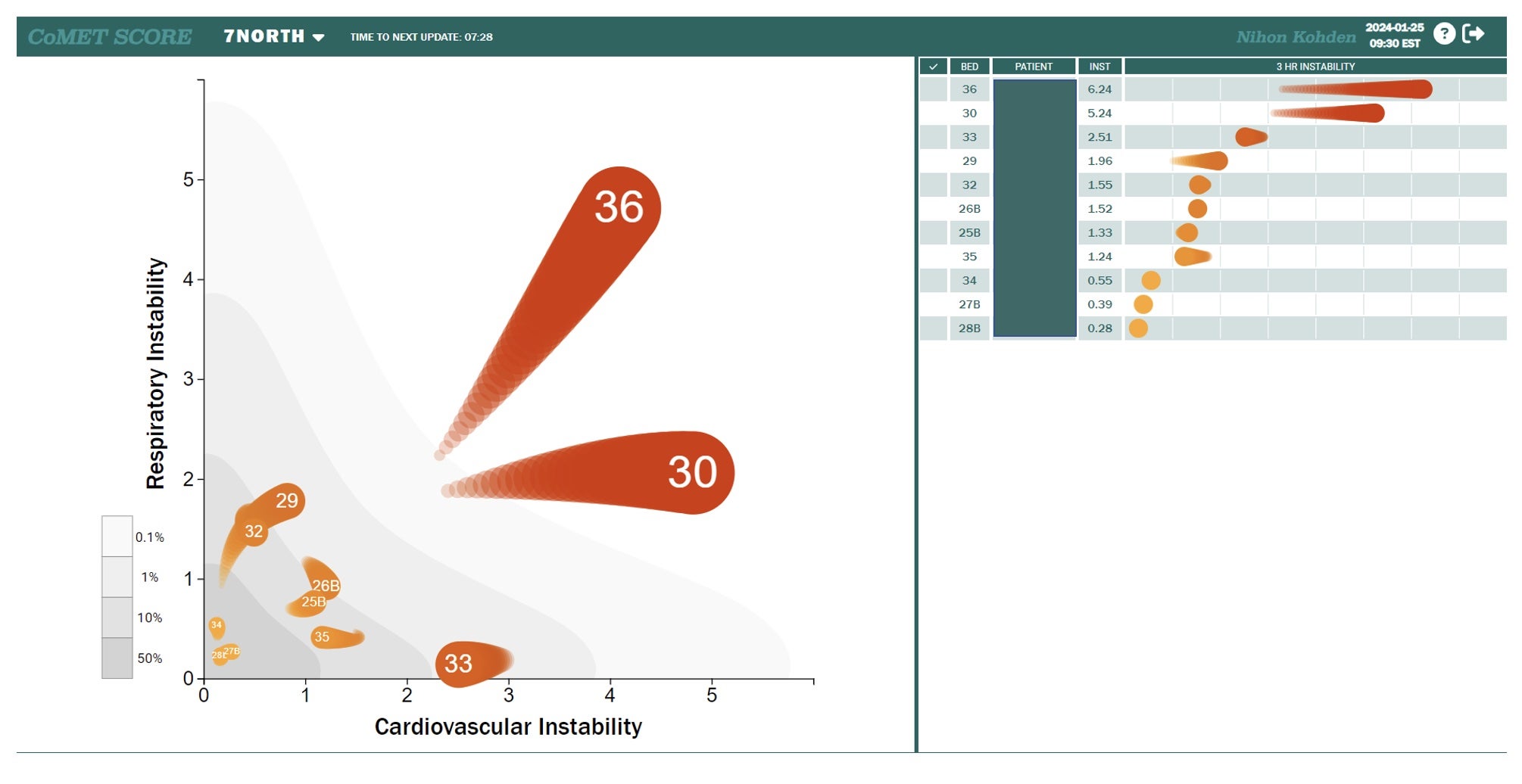Michael C. Spaeder, MD, MS

Dr. Spaeder’s somewhat unusual background in mathematics and statistics has greatly informed his research pursuits. Before his medical training, he completed graduate studies in mathematical statistics at George Washington University and was employed as a statistical consultant with the Economics Consulting and Quantitative Analysis group at Ernst & Young, LLP in Washington, DC. In his medical research career, he has sought to bridge his foundation in mathematics and statistics with his clinical focus, caring for critically ill and injured infants and children in the pediatric intensive care unit (PICU).
Predictive Monitoring in the PICU
Children and infants in PICUs often deteriorate suddenly due to sub-acute potentially catastrophic illness. Standard around-the-clock bedside monitoring of physiologic parameters, which might give clues about incipient deterioration, often flies by unnoticed. To solve this problem of undetected changes, predictive monitoring integrates these data to give clinicians early warning of events, allowing earlier, more effective intervention.
The Center for Advanced Medical Analytics at UVA is a national leader in the creation and implementation of predictive modeling algorithms for clinical deterioration in critically ill patients. These algorithms often work through the analysis of the behavior of certain physiologic parameters (e.g. heart rate variability). Often coupled with data extracted from the electronic health record, individualized patient stability indices can be calculated, allowing for early identification of at-risk patients.
Dr. Spaeder has developed predictive algorithms for sepsis and respiratory failure for infants and children in the PICU. These algorithms are now incorporated into the Continuous Monitoring of Event Trajectories (CoMET) predictive analytics software, which has been implemented in the UVA Health Children’s PICU since 2022. Dr. Spaeder continues to work on developing additional predictive algorithms for clinical deterioration as well as investigating the impact of CoMET on clinical outcomes in the PICU.

